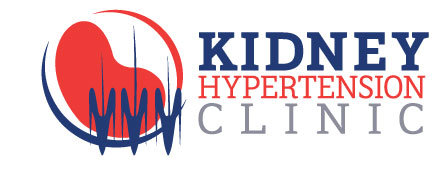Meet Our Team
Our team includes board-certified nephrologists, exceptional nurse practitioners & nursing staff, skilled technicians, highly-qualified dietitians & social workers, and an administration who ensures you receive outstanding care.


High blood pressure is the second leading cause of chronic kidney disease that leads to end stage renal disease. But a healthy diet is one of the ways you can help control your blood pressure. A low-sodium, reduced-fat diet can help keep blood pressure under control and may prevent kidney failure and other health problems brought on by high blood pressure.
High blood pressure is the second leading cause of chronic kidney disease after diabetes. Over time, the pressure of the blood through the tiny blood vessels of the kidneys can cause damage. By making lifestyle changes such as modifying your diet, exercising, stopping smoking and losing excess weight, you can help lower your blood pressure and avoid the complications such as kidney disease, eye disease and heart disease.
Limit your intake of sodium. Sodium is present in many processed foods, so be sure to read nutrition labels carefully. Try to limit your sodium intake to no more than 2,400 mg each day. Avoid cooking with salt whenever possible. Take the salt shaker off the table and use other seasonings and flavorings for salt. However, ask your doctor before using salt substitutes if you have kidney disease. Not everyone with high blood pressure is salt-sensitive. You can test yourself by following a low-sodium diet for two or three weeks; then re-check your blood pressure to see if it has improved.
Limit your intake of fat, especially saturated fat. Reducing the amount of fat you consume may lower your blood pressure and promote weight loss, which further reduces hypertension. Another reason to control the amount and type of fat that you eat is that high blood pressure increases the risk of arteriosclerosis or hardening of the arteries. Limit saturated fats that are in animal products such as the fat in meats, butter, cheese and whole milk products. Use monounsaturated fats such as canola oil and olive oil, and polyunsaturated fats including safflower oil, sunflower oil and soy oil in moderation.
People with chronic kidney disease (CKD) who are not yet on dialysis may be given a special diet to follow. The purpose of the diet is to help prolong kidney function and to keep patients feeling their best by preventing buildup of fluid and wastes.
Potassium is a mineral found in many of the foods we eat. People with advanced stages of chronic kidney disease (CKD) or are on dialysis need to limit the amount of potassium in their diets. Learn about potassium, what it does in the body and why it is important to keep potassium levels in a safe range.
Calcium is one of the well-known minerals; responsible for strong bones and teeth along with other important body functions. For people with chronic kidney disease (CKD) their calcium requirements are different from the general population. Find out about calcium, how it affects people with kidney disease and what to eat.
High levels of phosphorus in the blood can be dangerous for people with end stage renal disease (ESRD). The dialysis diet alone cannot control phosphorus. That's why your doctor and renal dietitian may recommend following a low-phosphorus diet combined with taking phosphorus binders (or phosphate binders) to help keep phosphorus in a safe range. Phosphate binders prevent your body from absorbing phosphorus from the food you eat.

Our team includes board-certified nephrologists, exceptional nurse practitioners & nursing staff, skilled technicians, highly-qualified dietitians & social workers, and an administration who ensures you receive outstanding care.

Kidney disease can develop from existing health issues such as diabetes, obesity, heart disease, and high blood pressure. Our team specializes in the prevention, diagnosis, treatment, and management of conditions and injuries affecting the kidneys.

Our state-of-the-art facilities serve patients in and arround Gwinnett County including: